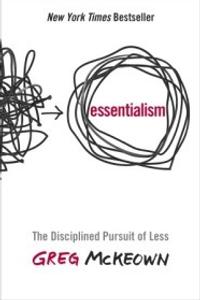
Man's Search for Meaning by Victor Frankl: Summary & Notes
by Victor Frankl
In One Sentence
Those who have a "why" to live can bear almost any "how"—meaning can be found even in the worst suffering, and the search for meaning is our primary drive.
Key Takeaways
- Meaning is the primary human motivation, not pleasure or power
- We always have freedom to choose our attitude, even in suffering
- Meaning is found through work, love, and how we face suffering
- The "existential vacuum" (meaninglessness) causes modern anxiety
- Logotherapy: helping people find their unique meaning
- Don't ask what life expects from you—ask what you expect from life
Summary
Often ranked among the most meaningful books for many, it’s fairly obvious why - the account of Frankl’s time in a concentration camp is both horrific and impossible to stop reading.
His own work in developing logo-therapy is interesting as a result; perhaps the most interesting learning is the flipping of the typical “finding life’s purpose” into recognizing that “each man is questioned by life”.
The book offers a prescription for finding one’s meaning in life, from someone who has seen the worst of it. A short, worthwhile read.
Who Should Read This Book
- Anyone searching for meaning or purpose
- People going through difficult times
- Therapists and counselors
- Readers interested in psychology and philosophy
FAQ
What is logotherapy?
Logotherapy is Frankl's therapeutic approach focused on helping people find meaning. "Logo" means "meaning" in Greek. Unlike Freud (pleasure-driven) or Adler (power-driven), Frankl believed the search for meaning is our primary motivation.
📖 Chapter-by-Chapter Breakdown
Click to expand the full detailed notes for every chapter →
📖 Chapter-by-Chapter Breakdown
Click to expand the full detailed notes for every chapter →
Notes
PREFACE:
- "Don’t aim at success—the more you aim at it and make it a target, the more you are going to miss it. For success, like happiness, cannot be pursued; it must ensue, and it only does so as the unintended side-effect of one’s dedication to a cause greater than oneself or as the by-product of one’s surrender to a person other than oneself. Happiness must happen, and the same holds for success: you have to let it happen by not caring about it. I want you to listen to what your conscience commands you to do and go on to carry it out to the best of your knowledge. Then you will live to see that in the long run—in the long run, I say!—success will follow you precisely because you had forgotten to think of it."
I: EXPERIENCES IN A CONCENTRATION CAMP
- I would like to mention a few similar surprises on how much we could endure: we were unable to clean our teeth, and yet, in spite of that and a severe vitamin deficiency, we had healthier gums than ever before. We had to wear the same shirts for half a year, until they had lost all appearance of being shirts. For days we were unable to wash, even partially, because of frozen water-pipes, and yet the sores and abrasions on hands which were dirty from work in the soil did not suppurate (that is, unless there was frostbite).
- An abnormal reaction to an abnormal situation is normal behavior.
- What did the prisoner dream about most frequently? Of bread, cake, cigarettes, and nice warm baths. The lack of having these simple desires satisfied led him to seek wish-fulfillment in dreams.
- I knew only one thing—which I have learned well by now: Love goes very far beyond the physical person of the beloved.
- It finds its deepest meaning in his spiritual being, his inner self. Whether or not he is actually present, whether or not he is still alive at all, ceases somehow to be of importance.
- As the inner life of the prisoner tended to become more intense, he also experienced the beauty of art and nature as never before. Under their influence he sometimes even forgot his own frightful circumstances.
- The attempt to develop a sense of humor and to see things in a humorous light is some kind of a trick learned while mastering the art of living. Yet it is possible to practice the art of living even in a concentration camp, although suffering is omnipresent.
- A man’s character became involved to the point that he was caught in a mental turmoil which threatened all the values he held and threw them into doubt. Under the influence of a world which no longer recognized the value of human life and human dignity, which had robbed man of his will and had made him an object to be exterminated (having planned, however, to make full use of him first—to the last ounce of his physical resources)—under this influence the personal ego finally suffered a loss of values.
- If the man in the concentration camp did not struggle against this in a last effort to save his self-respect, he lost the feeling of being an individual, a being with a mind, with inner freedom and personal value. He thought of himself then as only a part of an enormous mass of people; his existence descended to the level of animal life. The men were herded—sometimes to one place then to another; sometimes driven together.
- Apart from its role as a defensive mechanism, the prisoners’ apathy was also the result of other factors. Hunger and lack of sleep contributed to it (as they do in normal life, also) and to the general irritability which was another characteristic of the prisoners’ mental state.
- The fact that we had neither nicotine nor caffeine also contributed to the state of apathy and irritability.
- The experiences of camp life show that man does have a choice of action. There were enough examples, often of a heroic nature, which proved that apathy could be overcome, irritability suppressed. Man can preserve a vestige of spiritual freedom, of independence of mind, even in such terrible conditions of psychic and physical stress.
- And there were always choices to make. Every day, every hour, offered the opportunity to make a decision, a decision which determined whether you would or would not submit to those powers which threatened to rob you of your very self, your inner freedom; which determined whether or not you would become the plaything of circumstance, renouncing freedom and dignity to become molded into the form of the typical inmate.
- Dostoevski said once, "There is only one thing that I dread: not to be worthy of my sufferings." These words frequently came to my mind after I became acquainted with those martyrs whose behavior in camp, whose suffering and death, bore witness to the fact that the last inner freedom cannot be lost.
- It can be said that they were worthy of their sufferings; the way they bore their suffering was a genuine inner achievement. It is this spiritual freedom—which cannot be taken away—that makes life meaningful and purposeful.
- An active life serves the purpose of giving man the opportunity to realize values in creative work, while a passive life of enjoyment affords him the opportunity to obtain fulfillment in experiencing beauty, art, or nature. But there is also purpose in that life which is almost barren of both creation and enjoyment and which admits of but one possibility of high moral behavior: namely, in man’s attitude to his existence, an existence restricted by external forces. A creative life and a life of enjoyment are banned to him. But not only creativeness and enjoyment are meaningful. If there is a meaning in life at all, then there must be a meaning in suffering. Suffering is an ineradicable part of life, even as fate and death.
- The way in which a man accepts his fate and all the suffering it entails, the way in which he takes up his cross, gives him ample opportunity—even under the most difficult circumstances—to add a deeper meaning to his life. It may remain brave, dignified and unselfish. Or in the bitter fight for self-preservation he may forget his human dignity and become no more than an animal. Here lies the chance for a man either to make use of or to forgo the opportunities of attaining the moral values that a diffcult situation may afford him. And this decides whether he is worthy of his sufferings or not.
- The Latin word finis has two meanings: the end or the finish, and a goal to reach. A man who could not see the end of his "provisional existence” was not able to aim at an ultimate goal in life. He ceased living for the future, in contrast to a man in normal life. Therefore the whole structure of his inner life changed; signs of decay set in which we know from other areas of life. The unemployed worker, for example, is in a similar position. His existence has become provisional and in a certain sense he cannot live for the future or aim at a goal.
- Varying this, we could say that most men in a concentration camp believed that the real opportunities of life had passed. Yet, in reality, there was an opportunity and a challenge. One could make a victory of those experiences, turning life into an inner triumph, or one could ignore the challenge and simply vegetate, as did a majority of the prisoners.
- Any attempt at fighting the camp’s psychopathological influence on the prisoner by psychotherapeutic or psychohygienic methods had to aim at giving him inner strength by pointing out to him a future goal to which he could look forward. Instinctively some of the prisoners attempted to find one on their own.
- What does Spinoza say in his Ethics? —"Affectus, qui passio est, desinit esse passio simulatque eius claram et distinctam formamus ideam." Emotion, which is suffering, ceases to be suffering as soon as we form a clear and precise picture of it.
- The prisoner who had lost faith in the future—his future—was doomed. With his loss of belief in the future, he also lost his spiritual hold; he let himself decline and became subject to mental and physical decay. Usually this happened quite suddenly, in the form of a crisis, the symptoms of which were familiar to the experienced camp inmate.
- As we said before, any attempt to restore a man’s inner strength in the camp had first to succeed in showing him some future goal. Nietzsche’s words, "He who has a why to live for can bear with almost any how," could be the guiding motto for all psychotherapeutic and psychohygienic efforts regarding prisoners.
- What was really needed was a fundamental change in our attitude toward life. We had to learn ourselves and, furthermore, we had to teach the despairing men, that it did not really matter what we expected from life, but rather what life expected from us.
- When a man finds that it is his destiny to suffer, he will have to accept his suffering as his task; his single and unique task. He will have to acknowledge the fact that even in suffering he is unique and alone in the universe. No one can relieve him of his suffering or suffer in his place. His unique opportunity lies in the way in which he bears his burden.
- Long ago we had passed the stage of asking what was the meaning of life, a naïve query which understands life as the attaining of some aim through the active creation of something of value. For us, the meaning of life embraced the wider cycles of life and death, of suffering and of dying.
- This uniqueness and singleness which distinguishes each individual and gives a meaning to his existence has a bearing on creative work as much as it does on human love. When the impossibility of replacing a person is realized, it allows the responsibility which a man has for his existence and its continuance to appear in all its magnitude
- A man who becomes conscious of the responsibility he bears toward a human being who affectionately waits for him, or to an unfinished work, will never be able to throw away his life. He knows the “why" for his existence, and will be able to bear almost any “how."
- Human kindness can be found in all groups, even those which as a whole it would be easy to condemn.
- From all this we may learn that there are two races of men in this world, but only these two—the “race" of the decent man and the “race" of the indecent man. Both are found everywhere; they penetrate into all groups of society. No group consists entirely of decent or indecent people. In this sense, no group is of "pure race"—and therefore one occasionally found a decent fellow among the camp guards.
II: LOGOTHERAPY IN A NUTSHELL
- Logotherapy focuses rather on the future, that is to say, on the meanings to be fulfilled by the patient in his future.
- At the same time, logotherapy defocuses all the vicious-circle formations and feedback mechanisms which play such a great role in the development of neuroses.
Existential Frustration
- Man’s will to meaning can also be frustrated, in which case logotherapy speaks of "existential frustration." The term “existential" may be used in three ways: to refer to (1) existence itself, i.e., the specifically human mode of being; (2) the meaning of existence; and (3) the striving to find a concrete meaning in personal existence, that is to say, the will to meaning.
Noö-Dynamics
- To be sure, man’s search for meaning may arouse inner tension rather than inner equilibrium. However, precisely such tension is an indispensable prerequisite of mental health. There is nothing in the world, I venture to say, that would so effectively help one to survive even the worst conditions as the knowledge that there is a meaning in one’s life. There is much wisdom in the words of Nietzsche: "He who has a why to live for can bear almost any how."
- What man actually needs is not a tensionless state but rather the striving and struggling for a worthwhile goal, a freely chosen task.
- What he needs is not the discharge of tension at any cost but the call of a potential meaning waiting to be fulfilled by him.
The Existential Vacuum
- The existential vacuum manifests itself mainly in a state of boredom.
- Moreover, there are various masks and guises under which the existential vacuum appears. Sometimes the frustrated will to meaning is vicariously compensated for by a will to power, including the most primitive form of the will to power, the will to money. In other cases, the place of frustrated will to meaning is taken by the will to pleasure. That is why existential frustration often eventuates in sexual compensation. We can observe in such cases that the sexual libido becomes rampant in the existential vacuum.
The Meaning of Life
- For the meaning of life differs from man to man, from day to day and from hour to hour. What matters, therefore, is not the meaning of life in general but rather the specific meaning of a person’s life at a given moment.
- Ultimately, man should not ask what the meaning of his life is, but rather he must recognize that it is he who is asked. In a word, each man is questioned by life; and he can only answer to life by answering for his own life; to life he can only respond by being responsible. Thus, logotherapy sees in responsibleness the very essence of human existence.
The Essence of Existence
- This emphasis on responsibleness is reflected in the categorical imperative of logotherapy, which is: "Live as if you were living already for the second time and as if you had acted the first time as wrongly as you are about to act now!" It seems to me that there is nothing which would stimulate a man’s sense of responsibleness more than this maxim, which invites him to imagine first that the present is past and, second, that the past may yet be changed and amended. Such a precept confronts him with life’s finiteness as well as the finality of what he makes out of both his life and himself.
- By declaring that man is responsible and must actualize the potential meaning of his life, I wish to stress that the true meaning of life is to be discovered in the world rather than within man or his own psyche, as though it were a closed system.
- Thus far we have shown that the meaning of life always changes, but that it never ceases to be. According to logotherapy, we can discover this meaning in life in three different ways: (1) by creating a work or doing a deed; (2) by experiencing something or encountering someone; and (3) by the attitude we take toward unavoidable suffering. The first, the way of achievement or accomplishment, is quite obvious. The second and third need further elaboration.
- The second way of finding a meaning in life is by experiencing something—such as goodness, truth and beauty—by experiencing nature and culture or, last but not least, by experiencing another human being in his very uniqueness—by loving him.
The Meaning of Love
- Love is the only way to grasp another human being in the innermost core of his personality. No one can become fully aware of the very essence of another human being unless he loves him. By his love he is enabled to see the essential traits and features in the beloved person; and even more, he sees that which is potential in him, which is not yet actualized but yet ought to be actualized. Furthermore, by his love, the loving person enables the beloved person to actualize these potentialities. By making him aware of what he can be and of what he should become, he makes these potentialities come true.
- In logotherapy, love is not interpreted as a mere epiphenomenon of sexual drives and instincts in the sense of a so-called sublimation.
- Thus love is not understood as a mere side-effect of sex; rather, sex is a way of expressing the experience of that ultimate togetherness which is called love.
- The third way of finding a meaning in life is by suffering.
The Meaning of Suffering
- When we are no longer able to change a situation—just think of an incurable disease such as inoperable cancer—we are challenged to change ourselves.
- It is one of the basic tenets of logotherapy that man’s main concern is not to gain pleasure or to avoid pain but rather to see a meaning in his life. That is why man is even ready to suffer, on the condition, to be sure, that his suffering has a meaning.
- But let me make it perfectly clear that in no way is suffering necessary to find meaning. I only insist that meaning is possible even in spite of suffering—provided, certainly, that the suffering is unavoidable.
- If it were avoidable, however, the meaningful thing to do would be to remove its cause, be it psychological, biological or political. To suffer unnecessarily is masochistic rather than heroic.
Life’s Transitoriness
- Usually, to be sure, man considers only the stubble field of transitoriness and overlooks the full granaries of the past, wherein he had salvaged once and for all his deeds, his joys and also his sufferings. Nothing can be undone, and nothing can be done away with. I should say having been is the surest kind of being.
- The pessimist resembles a man who observes with fear and sadness that his wall calendar, from which he daily tears a sheet, grows thinner with each passing day. On the other hand, the person who attacks the problems of life actively is like a man who removes each successive leaf from his calendar and files it neatly and carefully away with its predecessors, after first having jotted down a few diary notes on the back. He can reflect with pride and joy on all the richness set down in these notes, on all the life he has already lived to the fullest. What will it matter to him if he notices that he is growing old? Has he any reason to envy the young people whom he sees, or wax nostalgic over his own lost youth? What reasons has he to envy a young person? For the possibilities that a young person has, the future which is in store for him? "No, thank you," he will think. "Instead of possibilities, I have realities in my past, not only the reality of work done and of love loved, but of sufferings bravely suffered. These sufferings are even the things of which I am most proud, though these are things which cannot inspire envy."
Logotherapy as a Technique
- An individual, for example, who is afraid of blushing when he enters a large room and faces many people will actually be more prone to blush under these circumstances.
- Ironically enough, in the same way that fear brings to pass what one is afraid of, likewise a forced intention makes impossible what one forcibly wishes. This excessive intention, or "hyper-intention," as I call it, can be observed particularly in cases of sexual neurosis. The more a man tries to demonstrate his sexual potency or a woman her ability to experience orgasm, the less they are able to succeed. Pleasure is, and must remain, a side-effect or by-product, and is destroyed and spoiled to the degree to which it is made a goal in itself.
- In addition to excessive intention as described above, excessive attention, or "hyper-reflection," as it is called in logotherapy, may also be pathogenic (that is, lead to sickness).
The Collective Neurosis
- The existential vacuum which is the mass neurosis of the present time can be described as a private and personal form of nihilism; for nihilism can be defined as the contention that being has no meaning.
THE CASE FOR A TRAGIC OPTIMISM
- LET US FIRST ASK OURSELVES WHAT SHOULD BE understood by "a tragic optimism." In brief it means that one is, and remains, optimistic in spite of the "tragic triad," as it is called in logotherapy, a triad which consists of those aspects of human existence which may be circumscribed by: (1) pain; (2) guilt; and (3) death.
- In other words, what matters is to make the best of any given situation. "The best," however, is that which in Latin is called optimum—hence the reason I speak of a tragic optimism, that is, an optimism in the face of tragedy and in view of the human potential which at its best always allows for: (1) turning suffering into a human achievement and accomplishment; (2) deriving from guilt the opportunity to change oneself for the better; and (3) deriving from life’s transitoriness an incentive to take responsible action.
- It must be kept in mind, however, that optimism is not anything to be commanded or ordered. One cannot even force oneself to be optimistic indiscriminately, against all odds, against all hope.
- To the European, it is a characteristic of the American culture that, again and again, one is commanded and ordered to "be happy." But happiness cannot be pursued; it must ensue. One must have a reason to be happy. Once the reason is found, however, one becomes happy automatically.
- Once an individual’s search for a meaning is successful, it not only renders him happy but also gives him the capability to cope with suffering.
- As to the causation of the feeling of meaninglessness, one may say, albeit in an oversimplifying vein, that people have enough to live by but nothing to live for; they have the means but no meaning. To be sure, some do not even have the means. In particular, I think of the mass of people who are today unemployed. Fifty years ago, I published a study devoted to a specific type of depression I had diagnosed in cases of young patients suffering from what I called "unemployment neurosis." And I could show that this neurosis really originated in a twofold erroneous identification: being jobless was equated with being useless, and being useless was equated with having a meaningless life. Consequently, whenever I succeeded in persuading the patients to volunteer in youth organizations, adult education, public libraries and the like—in other words, as soon as they could fill their abundant free time with some sort of unpaid but meaningful activity—their depression disappeared although their economic situation had not changed and their hunger was the same. The truth is that man does not live by welfare alone.
- As logotherapy teaches, there are three main avenues on which one arrives at meaning in life. The first is by creating a work or by doing a deed. The second is by experiencing something or encountering someone; in other words, meaning can be found not only in work but also in love.
- Most important, however, is the third avenue to meaning in life: even the helpless victim of a hopeless situation, facing a fate he cannot change, may rise above himself, may grow beyond himself, and by so doing change himself. He may turn a personal tragedy into a triumph.
- Is this to say that suffering is indispensable to the discovery of meaning? In no way. I only insist that meaning is available in spite of—nay, even through—suffering, provided, as noted in Part Two of this book, that the suffering is unavoidable. If it is avoidable, the meaningful thing to do is to remove its cause, for unnecessary suffering is masochistic rather than heroic. If, on the other hand, one cannot change a situation that causes his suffering, he can still choose his attitude.
- The third aspect of the tragic triad concerns death. But it concerns life as well, for at any time each of the moments of which life consists is dying, and that moment will never recur. And yet is not this transitoriness a reminder that challenges us to make the best possible use of each moment of our lives? It certainly is, and hence my imperative: Live as if you were living for the second time and had acted as wrongly the first time as you are about to act now.
- From this one may see that there is no reason to pity old people. Instead, young people should envy them. It is true that the old have no opportunities, no possibilities in the future. But they have more than that. Instead of possibilities in the future, they have realities in the past—the potentialities they have actualized, the meanings they have fulfilled, the values they have realized—and nothing and nobody can ever remove these assets from the past.
- In view of the possibility of finding meaning in suffering, life’s meaning is an unconditional one, at least potentially. That unconditional meaning, however, is paralleled by the unconditional value of each and every person. It is that which warrants the indelible quality of the dignity of man. Just as life remains potentially meaningful under any conditions, even those which are most miserable, so too does the value of each and every person stay with him or her, and it does so because it is based on the values that he or she has realized in the past, and is not contingent on the usefulness that he or she may or may not retain in the present.
- More specifically, this usefulness is usually defined in terms of functioning for the benefit of society. But today’s society is characterized by achievement orientation, and consequently it adores people who are successful and happy and, in particular, it adores the young. It virtually ignores the value of all those who are otherwise, and in so doing blurs the decisive difference between being valuable in the sense of dignity and being valuable in the sense of usefulness. If one is not cognizant of this difference and holds that an individual’s value stems only from his present usefulness, then, believe me, one owes it only to personal inconsistency not to plead for euthanasia along the lines of Hitler’s program, that is to say, “mercy" killing of all those who have lost their social usefulness, be it because of old age, incurable illness, mental deterioration, or whatever handicap they may suffer.
- Confounding the dignity of man with mere usefulness arises from a conceptual confusion that in turn may be traced back to the contemporary nihilism transmitted on many an academic campus and many an analytical couch. Even in the setting of training analyses such an indoctrination may take place.
- So, let us be alert—alert in a twofold sense:
- Since Auschwitz we know what man is capable of.
- And since Hiroshima we know what is at stake.
AFTERWORD
- Frankl told the audience that "It is we ourselves who must answer the questions that life asks of us, and to these questions we can respond only by being responsible for our existence." This belief became the cornerstone of Frankl’s personal life and professional identity.



